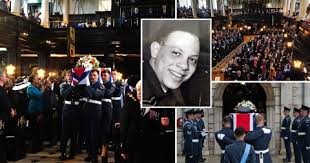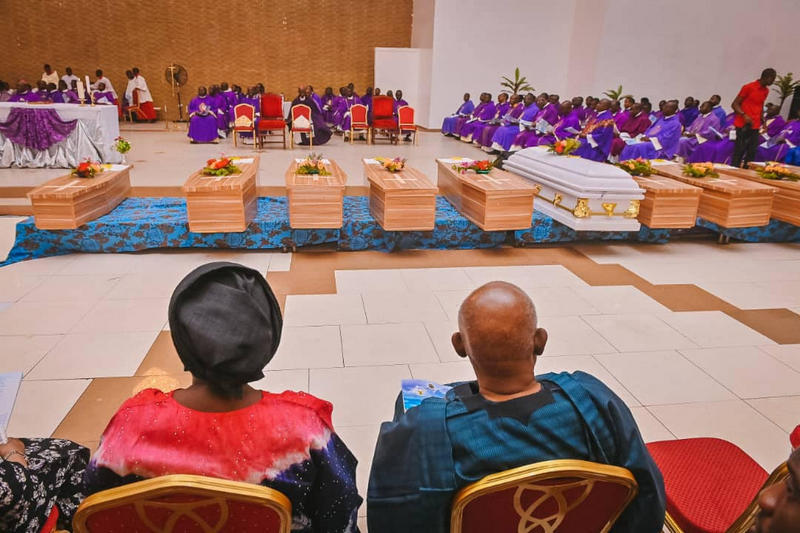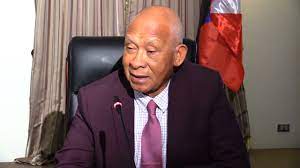
St Clement Danes Church, the Central Church of the RAF, in Westminster, was packed to its 600 person capacity today (25 May) to give a World War Two airman a “fitting send-off”, after the public came together when it seemed he would have a very low-key funeral, with no family in attendance.
Flt Sgt Peter Brown, originally from Jamaica, was one the last so-called “Pilots of the Caribbean” who were a group of Afro-Caribbean volunteer RAF personnel. He died alone at home in in Maida Vale, London, aged 96, last December. He was due to have a service in March, but organisers delayed it following a campaign by his neighbours to give him a send off far more in keeping with what he deserved.
Arrangements were made to move it to the larger Church and genealogists were able to make contact with distant relatives, to allow them to attend. Also at the funeral were: Air Chief Marshal Sir Mike Wigston, along with hundreds of members of the public, a large number of the armed forces, representatives of the Caribbean community, friends and neighbours.
His coffin was carried by uniformed pallbearers into the church and was draped with a Union Flag, and adorned with an RAF hat, a spray of flowers and his war medals. The service was live-streamed on YouTube and included readings and live singing performances.
Enlisted into volunteer reserve
Flt Sgt Brown was born in Jamaica in August 1926, and few knew much about about his military service until after his death. He enlisted into the RAF Volunteer Reserve in September 1943, becoming one of the 450 black airmen who earned the nickname of “Pilots of the Caribbean” and flew aircraft such as the Lancaster and Spitfire, carrying out missions as a radio operator and gunner.
Sharing a base with the Dam-busters
His body was found just before Christmas last year when Paul Newman, who lived nearby, became concerned that he was not responding to knocks on his door. He spoke fondly of his neighbour: “Peter didn’t want to elaborate too much on what he did in the war, but he did tell me that he had to lie a little bit about his age to join up, as he was just sixteen.”
He explained how Flt Sgt Brown had told him that he had been based at RAF Scampton, in Lincolnshire, with 625 Squadron; sharing the same air base with the guys who carried out the famous “Dam-buster” raids.
Genealogists play their part
Intrigued by his incredible story, a team of genealogists from the east of England took on the task of investigating his past and tracing any living family members. One of them, Lisa Hill, discovered that he had flown five missions in Lancaster bombers before the age of 20.
She also searched Jamaican newspaper archives, and found articles that mentioned him returning home to visit his mother. “The warmth with which he is remembered both by friends, neighbours, and his family is striking,” she observed.
In addition, she learned that Flt Sgt Brown was passionate about cricket and would often be heard cheering televised matches from his flat, where he lived alone; although neighbours were quick to make the point that he was very much part of the local community and never gave the impression of being lonely.
Determined to pay tribute
Distant cousin Brooke Alexander, 31, was tracked down by the genealogists and flew over from Jamaica for the funeral. She said how hearing of his death all on his own, had broken her heart and was determined to come over and pay her own tribute.
She was full of praise for the way that Westminster, the RAF and everyone else had come together and decided it was worth the effort to honour him “in such a wonderful way”.
Canadian base cousin praises honour
Another long-lost relative, Rosie Bird, 62, flew in from Vancouver, Canada, after reading about the story in the British press. Originally from Jamaica, she had actually been researching her family tree and had been trying to track Peter down for decades, after identifying him as a cousin, once removed.
She said it was only by chance that she read a British newspaper and saw the story about Peter Brown and that they were looking for his family. “I didn’t know where I could find him. My dad’s generation and Peter left for WW2 in the forties and then we lost track of him, so it was amazing to read about him and what had happened to him after he came to England” she remarked.
Ms Bird went on to state: “I think it’s glorious and such a tribute to him and all the Jamaican men and people from the British West Indies that left to come and serve, that the RAF are honouring him.”
Incredibly brave man
Neighbour, Julian Futter, was pleased that the community had been able to give him a dignified and respectable send-off. “We just didn’t want him to be buried alone,” he said before adding: “We knew him as Peter but, of course, he will be remembered as one of these incredibly brave men who flew a bomber at enormous risk to themselves.”
Lasting legacy
The Forgotten Generations who are an organisation which campaigns for British African and Caribbean history to be taught in schools, were also delighted with the fantastic service put on for Flt Sgt Brown.
Their founder, 71-year-old Donald Campbell remarked that the funeral was a fitting tribute to a brave man: “It should be celebrated. He was on the front line, flying into enemy territory, a lot of us will take a bit of Peter Brown away and tell it to others and leave his legacy behind.”






0 Comments